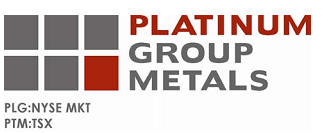Platinum Group Metals Ltd., Vancouver, Canada, and Johannesburg, South Africa, (TSX: PTM) (NYSE American: PLG) and subsidiary Lion Battery Technologies Inc., reports that the U.S. Patent and Trademark Office has issued a second patent to Florida International University (“FIU”) related to platinum group metals (“PGMs“) being used in lithium batteries. Under a sponsored research agreement (“SRA”), Lion has exclusive rights to all technology being developed by FIU with Lion funding, including granted patents.
The new patent, the second one granted to FIU relating to Lion’s research, was issued on December 8, 2020 entitled “Battery Cathodes for Improved Stability” with patent number US 10,862,103 B2. The patent covers a preparation method using PGM catalysts in carbon materials for use as cathodes in lithium batteries, including lithium-ion, lithium-air, and lithium-sulfur batteries. The new patent broadens protection for US patent 10,734,636 B2 issued to FIU on August 4, 2020 covering the composition of carbon cathodes containing PGMs. Both patents are assigned to FIU and licensed by Lion.
In addition to the above new patent, a further provisional patent application has also been filed for specific application of PGMs in most lithium batteries, including current lithium ion chemistries.
As a result of the advancement in PGM battery research work conducted by FIU and Lion, the Company and Anglo American Platinum Limited, Lion’s co-founder, have each approved additional investment in Lion. After this further investment, the Company will own a 53.7% interest in Lion.
Dr. Bilal El Zahab, the project leader at FIU commented, “We are pleased to receive the second, broader method patent for our research work and we are excited about our new innovations having potential application to most current, state of the art lithium ion battery chemistry on the market.”
R. Michael Jones CEO of Platinum Group said, “PGMs have many applications in green technologies, including clean emissions equipment for internal combustion engines, hydrogen fuel cell applications for power generation in cars and trucks, and now the potential to improve the performance of battery electric vehicles. It makes sense that PGMs can play an important role in innovative energy technology as we seek more efficient energy reactions. This is what the PGMs palladium, platinum and rhodium do – they are powerful catalysts that accelerate chemical reactions. The potential of PGMs in batteries is obvious; it stares at us from the periodic table.”
Lion is a private company formed jointly in 2019 by Anglo American Platinum and the Company to accelerate the development of next-generation battery technology using platinum and palladium. Under the SRA, research and patent applications are being funded in battery innovations utilizing platinum and palladium to unlock the potential of higher power to weight ratios in new generation lithium air and lithium sulfur battery chemistries. This work may now potentially have application to most commercial lithium batteries. Dr. Bilal El-Zahab, with prior battery research and development experience and post-doctoral work completed at the Massachusetts Institute of Technology, is the head of the Lion battery research team.
About Platinum Group Metals Ltd.
Platinum Group Metals Ltd. is the operator of the Waterberg Project, a 19.5 million ounce proven and probable reserve, bulk underground palladium, platinum and gold deposit located in South Africa. The Waterberg Project was discovered by PTM and is being jointly developed with Impala Platinum Holdings Ltd. (“Implats”), Japan Oil, Gas and Metals National Corporation, Mnombo Wethu Consultants (Pty) Ltd. and Hanwa Co. Ltd.
Platinum Group Metals is investing in energy efficiency innovation where PGMs can play an important role. As the majority owner of the Waterberg Project, the Company views the innovative use of PGMs in new technology as an opportunity.




